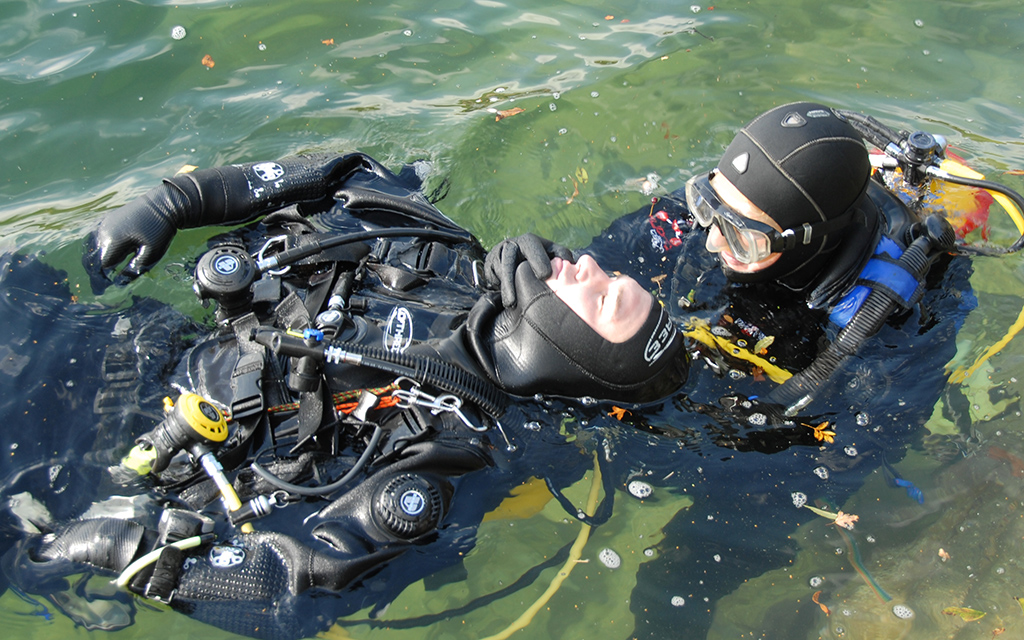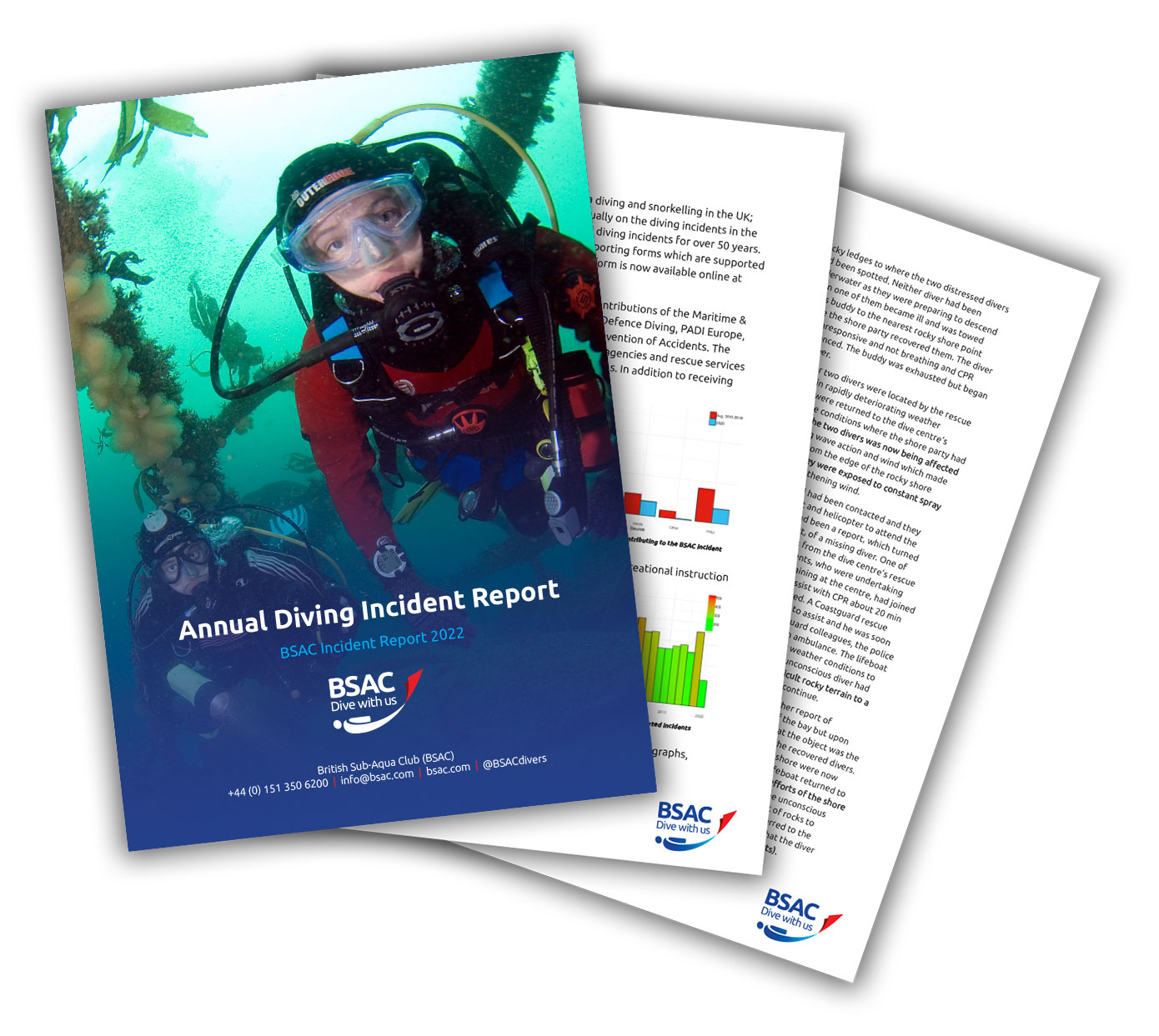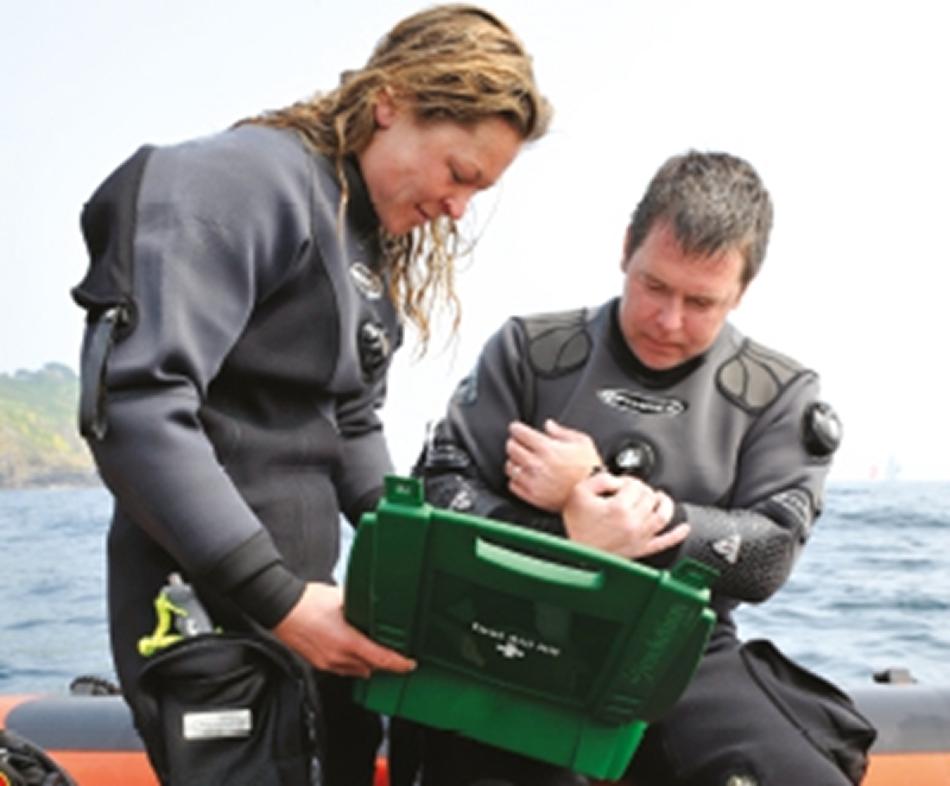
BSAC's Safety and Development Manager, Jim Watson, shares some ideas for progressing your safety training in 2024.
Although the seasonal focus may currently be on the impending celebrations, there is still plenty of scope to begin planning for the coming year of 2024.
The recently published BSAC Incident Report 2022 and the associated recorded presentation provides further evidence of the efficacy of rescue training and some indication of early season preparation and the benefits of establishing diving fitness early. So, as you relax in order to recover from the excesses of the season here are some ideas to turn your mind to progressing your safety training in 2024.
Efficacy of rescue training
In the 2018 Incident Report we analysed the efficacy of rescue training, including AS, CBL, CPR, O2 enriched CPR and AED. Each showed a good success rate for skills which are fortunately rarely called upon during diving activity. The 2022 Incident report has further examples of such success and clear evidence of preventing an incident worsening and resulting in lives being saved through prompt and effective action.
Table 1: The efficacy of rescue techniques used in reported incidents
| Technique | Reported use | Successful outcome | Success rate |
| Alternative Air Source used | 133 | 114 | 86% |
| Controlled Buoyant Lift | 82 | 64 | 78% |
| CPR | 84 | 13 | 15% |
| Oxygen-enriched CPR | 23 | 5 | 23% |
| AED defibrillator use | 20 | 6 | 30% |
Safety skills training
Training in relevant safety skills is embedded in the Diver Training Programme (DTP) and Snorkel Training at all levels with both self and buddy rescue being developed across the grades. The progression of such skills extends to rescue management alongside increasing levels of dive planning and management. In support of this progression there is a wide range of Skill development courses available to be run in branch, regionally or through BSAC Centres and not just limited to Rescue Skills (O2, PRM, FAD, AED and Lifesaver courses) but are embedded in other training in the Club diving, seamanship, special interest and Technical. There are many to choose from and regional events (and some Centre events) are listed on Events page of the website allowing for online booking.
Maintaining and improving skills
Clearly, with such skills being required infrequently keeping them up to date and in practice is very important and there are various ways we can achieve that. Firstly, progressing your own diver training through the diving grades requires a refreshing and extension of existing skills and has the added advantage of extending your diving skills and opening further diving opportunities and experiences. Secondly, simply refreshing existing skills, either in the pool or at the end of a dive not only helps keep the skills fresh but also helps maintain appropriate diving fitness. Instructors have the added advantage that by teaching regularly the whole range of skills they are not only honing their personal skills by demonstrating them but are helping their students to develop an appropriate level of competence themselves.
Stay safe – dive safe
Jim Watson
Safety and Development Manager






